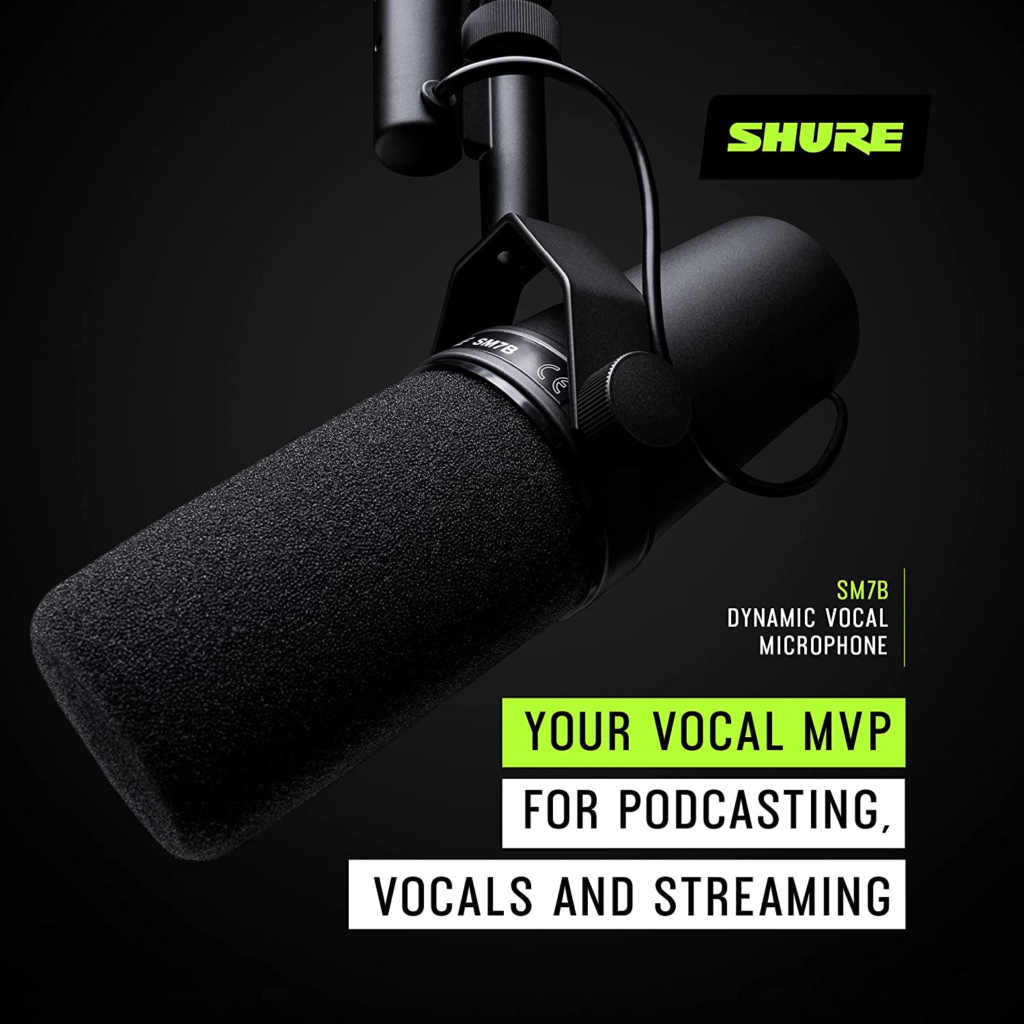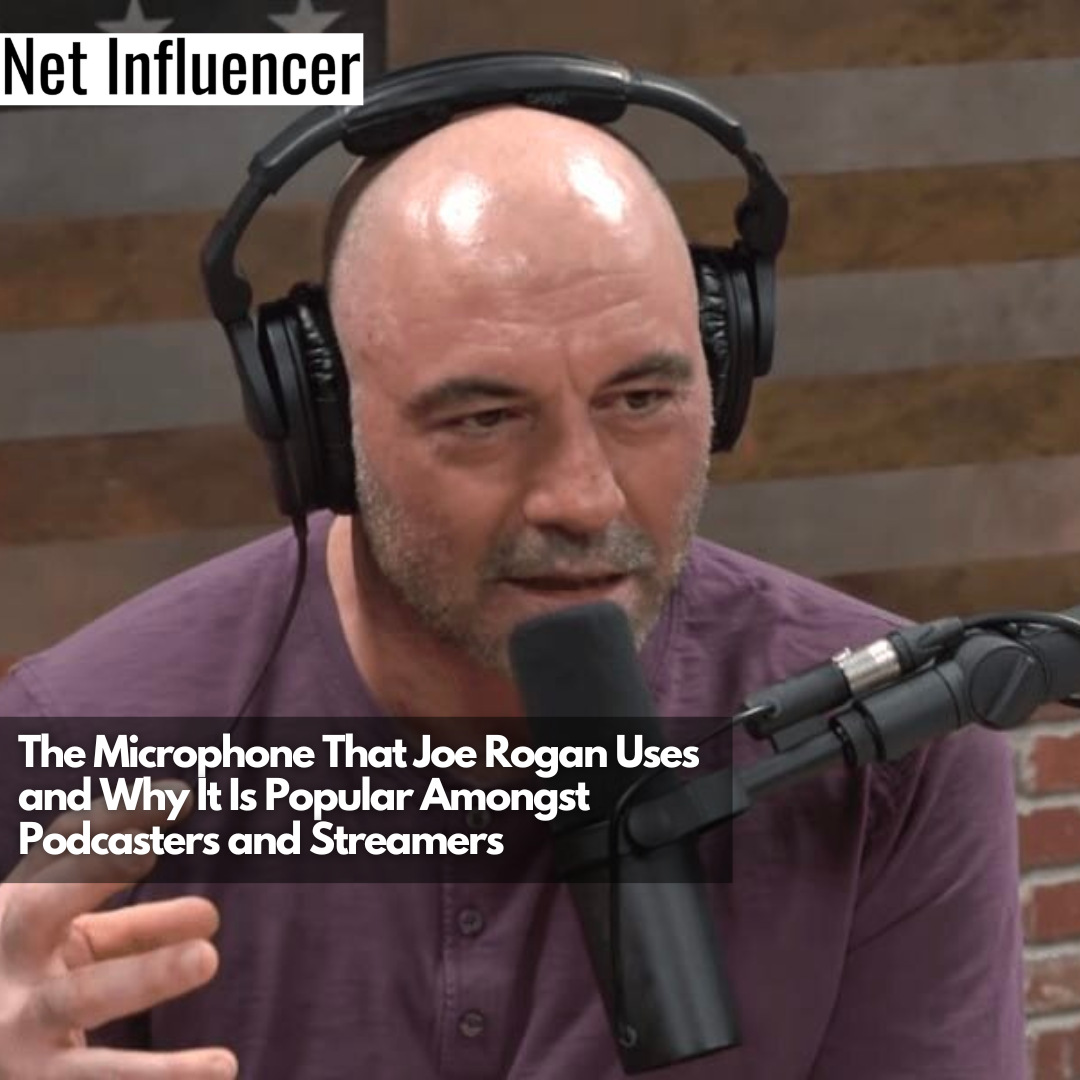Technology
Joe Rogan’s Microphone and Its Popularity Amongst Podcasters and Streamers
Joe Rogan is one of today’s most famous podcasters. He’s no stranger to podcasting and uses some of the best equipment to record his episodes. If you’re interested in taking your podcast to the next level, you may wonder what microphone Joe uses. Here, NetInfluencer discusses what makes a microphone suitable for podcasting and details on Joe’s model: the Shure SM7B.
About Joe Rogan
Joe Rogan is one of today’s most famous podcasters. His show, the Joe Rogan Experience, was the number-one podcast on Spotify in 2022. Joe is known for pushing the envelope with controversial topics. He’s also hosted several infamous guests like Elon Musk, Kanye West, and Edward Snowden. According to YouTube, Joe Rogan’s top ten podcast episodes received around 278 million views.
Joe is no stranger to podcasting and uses some of the best equipment to record his episodes. If you’re interested in taking your podcast to the next level, you may wonder what Joe uses to keep his audio crisp, clear, and free from interference. Using the right microphone is essential in maintaining a professional-sounding podcast.
In addition to other state-of-the-art equipment, Joe Rogan uses the Shure SM7B microphone. Here, NetInfluencer discusses what makes a microphone suitable for podcasting. We also cover vital details and features of the Shure SM7B. Keep reading to learn more about Joe’s preferred mic and how to choose a suitable model for your show.
Choosing the Right Microphone for Your Podcast
Before we dive into the microphone Joe Rogan uses on The Joe Rogan Experience, review these guidelines for choosing the best microphone for your podcast.
Studio Space
The type of microphone you use for podcasting should complement your studio space. For example, if you record in a professional studio, the room may have built-in noise reduction features. If you record in your basement or a public space, you may need to purchase a microphone with adequate noise cancellation properties.

If you’re more mobile and record podcasts on the go in different locations, the microphone you choose should be portable. Standard studio equipment may be too large and impractical if you don’t have a dedicated podcasting space. Also, consider how many people are on your show at any given time. You may have to purchase more than one microphone for optimal audio quality.
Sensitivity
Podcasting microphones have varying sensitivity levels. A microphone with low sensitivity is ideal for large, open studios or shared spaces, as they put more of a focus on the speaker’s voice. On the other hand, if you have a small studio space or use a recording booth, a higher-sensitivity microphone may suit you best. High-sensitivity microphones pick up more audio, which provides clearer recordings in quiet areas.
If you have other electronic devices running while you’re recording, a microphone may pick up electrostatic noise or interference. This interference often makes a humming noise, which can negatively impact the quality of your recorded episode. Microphones with hum rejection features cut down or eliminate this noise for clearer audio.
Shock Mount
If you don’t record in a professional studio, you may need a shock mount to go along with your podcasting microphone. A shock mount is typically an add-on accessory that attaches to the stand to absorb any outside vibrations or movements. The shock mount helps anchor the mic in place to make it less vulnerable to interference. Many of today’s modern microphones are equipped with internal shock mount capabilities.
If you record in your home, a sensitive microphone could pick up things like your HVAC system or laundry running. A shock mount dramatically reduces the chances those sounds will wind up on your podcast.
Presence
The human ears are naturally the most sensitive to frequencies between 3 kHz and 6 kHz. This range is also known as presence, and a good podcasting microphone has a sensitivity within this range. When a microphone amplifies this range, vocals sound much more precise and professional.
Recording
When recording your podcast, microphone audio signals are converted into digital signals so a computer can read them properly. This conversion is usually done one of two ways: through a microphone’s built-in capabilities or an external device. Microphones with a built-in analog-to-digital converter plug directly into the computer’s audio jack. Your budget and existing equipment will dictate which setup is best for your podcast.
Joe Rogan Uses the Shure SM7B
Now that you’re familiar with some of the key features and capabilities of podcasting microphones let’s look at Joe Rogan’s preferred model: the Shure SM7B.

Why Use the Shure SM7B?
The Shure SM7B has a wide-range frequency response and a detailed audio profile, making it ideal for recording various audio types. It has air suspension shock isolation and a pop filter, which reduces breathiness in conversations and outside mechanical noise. It also comes with advanced electromagnetic shielding, which reduces hum from surrounding studio equipment and electronic devices.
Here are some specifics about the different features of the Shure SM7B:
- Frequency Response: The Shure SM7B has a frequency response of 50 Hz – 20,000 Hz. This range accommodates a wide variety of audio types, and several switches filter down the ranges for specific needs. The built-in presence boost has a sensitivity between 5 and 6 kHz, making it ideal for podcasting.
- Shock Mount: This microphone’s internal air suspension shock and vibration isolator helps filter out sounds from adjusting or handling the microphone. Joe Rogan also has an extra boom arm to further cut down on external movement and vibrations from interfering with audio recording.
- Sensitivity: The Shure SM7B has a very low sensitivity rating, which is well-suited for Joe’s large, open studio. The official sensitivity rating of the microphone is -59.0 dB (1.12 mV). This sensitivity rating is also known as “open circuit voltage.”
- Hum Rejection: Joe’s busy studio contains a variety of audio and visual equipment, which could cause significant interference in recording quality. Fortunately, his microphone of choice does an excellent job of filtering it out. The model is primarily known for protection against interference from computer monitors.
If the Shure SM7B sounds like the perfect microphone for your podcast, you can purchase one directly from the Shure website or through online retailers like Amazon.





















